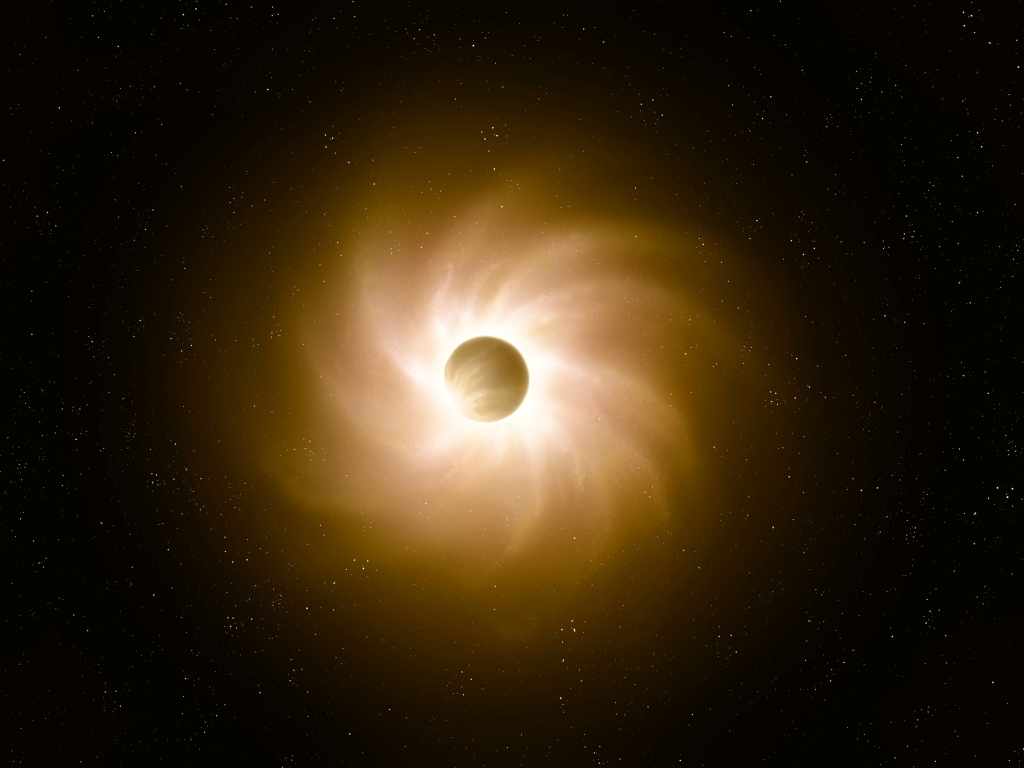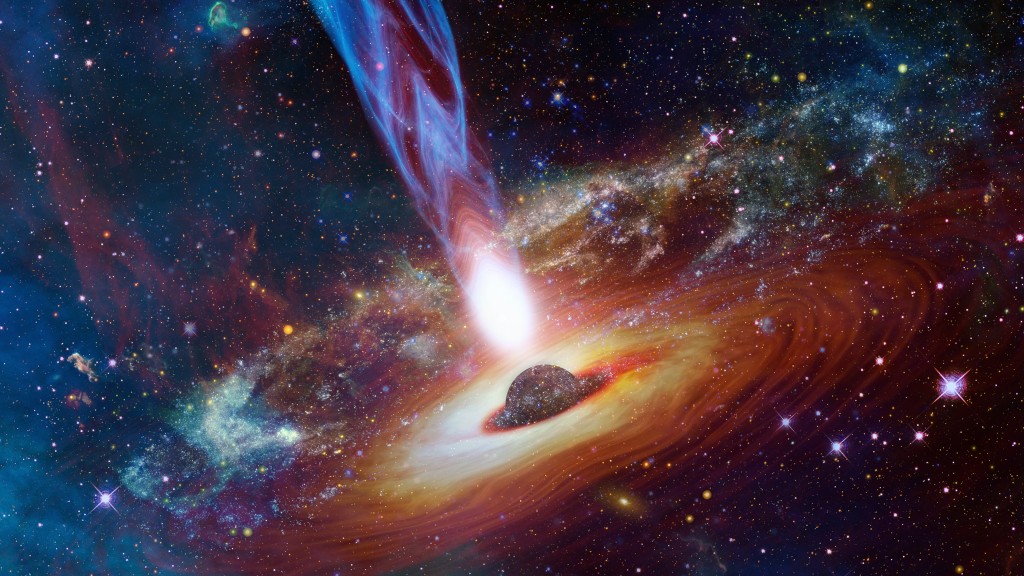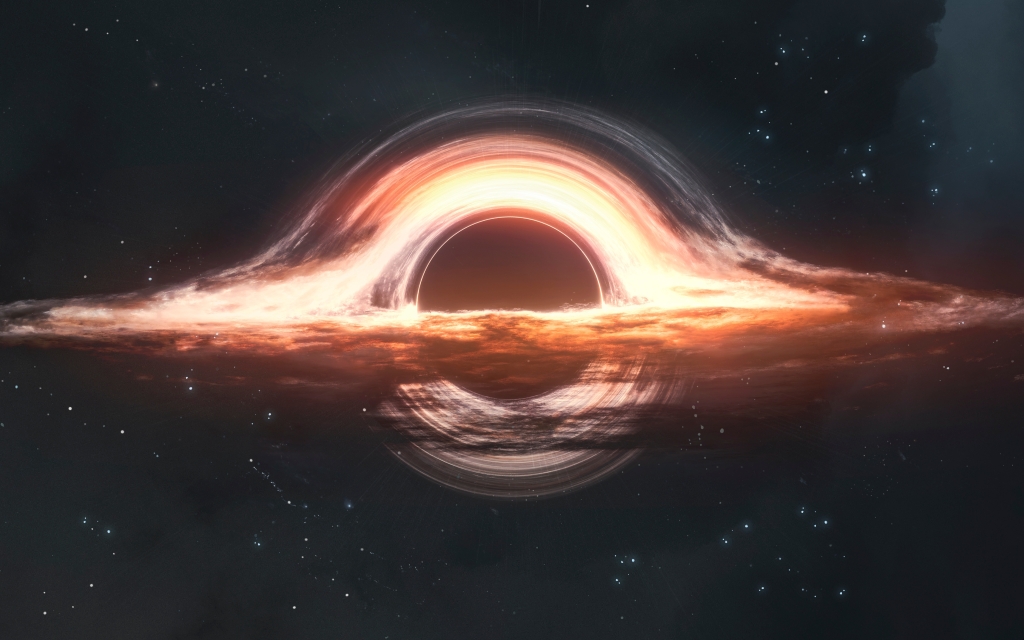This is a submission for Kevin’s No Theme Thursday

Kevin’s artistic picture above reminds me of a Quasar, a supermassive black hole emitting enormous amounts of energy.
What is a Quasar ?
A Quasar is a supermassive black hole at the center of a galaxy that is emitting enormous amounts of energy. The quasar is the supermassive black hole plus its accretion disk, the gas it is feeding on and the radiation it emits. The quasar is actively feeding on gas and stars and emitting enormous amounts of radiation in the process. The radiant energy of quasars is enormous; the most powerful quasars have luminosities thousands of times greater than that of a galaxy such as the Milky Way, and millions of times greater than the largest and most luminous stars in the known universe.

TON 618
TON 618 is a hyper luminous Quasar known to house one of the most massive black holes ever discovered, with an estimated mass of around 40 to 60 billion solar masses. Its luminosity is estimated to be 140 trillion times that of the Sun. The diameter of TON 618 is 780 billion kilometers or 82.6 light-years. Keep in mind that the distance to the moon is 1.3 light seconds and 82.6 light years is more than two billion times larger than that. Our sun is gigantic with a diameter 109 times larger than the diameter of earth. 1.3 million earths could fit inside the volume of our sun. However, in comparison to TON 618, our sun is a lot less than tiny. The diameter of TON 618 is 561 million times larger than that of the sun’s diameter and 177 octillion (an octillion is 27 zeros) suns could fit inside the volume of TON 618. In other words, we are comparing a dust particle to planet earth size wise. I am pretty sure you are not going to be able to imagine this.

When TON 618 was discovered in 1957, quasars and supermassive black holes were not yet recognized and understood by astronomers. The word quasar inspired shock and awe in every nerd on the planet. The concept of quasars, or quasi-stellar radio sources, wasn’t fully recognized until 1963. When I was a kid in the 1970’s there was a lot of speculation as to what these gigantic ultra bright but far away objects could be. TON 618 is located 18.2 billion light years away. Considering that the reachable limit of the Universe is 16.5 billion light years even if you travel at the speed of light, you could never travel to TON 618 (barring the warp drive in Star Trek).
The Event Horizon
When we are talking about the diameter of a black hole we are not talking about a sphere with a solid surface. The black hole is a sphere, or an oval, wherein gravity is so strong that nothing can escape, not light, not anything. It’s truly black. As you approach the event horizon you become invisible, space deforms, and from the perspective of an outside observer, time appears to stop for someone reaching the event horizon of a black hole. Time will continue for someone falling in, well in some sense. You’ll be transported beyond our universe and time as we know it. We can guess but we can’t really know.

Black Holes
Black holes are invisible. They are truly black. However, we can see them if they are consuming matter. The matter close to black holes will heat up and glow. The closer to the event horizon the redder it is. It is called an accretion disk as in the depiction above. There are an estimated 100 million black holes in our galaxy, the Milky Way. At the center of the Milky Way is a super massive black hole called Sagittarius A-star. It is 4 million times more massive than our sun. There are supermassive black holes located at the center of most large galaxies. The supermassive black holes are considered to play a crucial role in the formation of galaxies.

Black Hole Animation
Below is an animation created by NASA that depicts what an observer falling into a black hole would see. The video is about 4 minutes long.
TON 618 Animation
Below is an animation of TON 618, a quasar and the largest black hole known in the universe. This video is about 5 minutes.
To see my The Bizarre Reality of Black Holes Super Fact Click Here
To see the Super Facts click here
Note : Today March 14 is Albert Einstein’s birthday, the man who gave us the General Theory of Relativity, which mathematically describes black holes. It is also Pi Day (first 10 digits 3.1415926535), and there’s a rare moon eclipse tonight called a blood moon or a worm moon. Also, Dallas is under a fire warning. Be careful.
Important Note : I am going on a ski vacation tomorrow and I will take a one-week break from blogging as well as a break from reading other people’s blogs.

